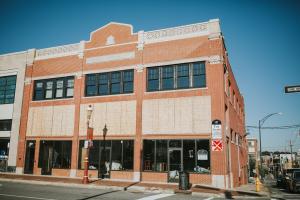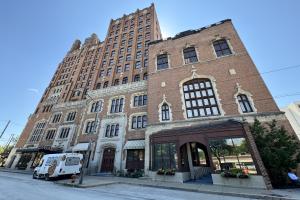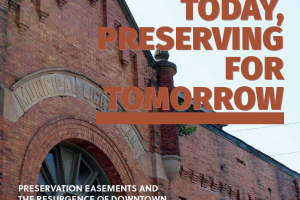
The Efird Building, a three-story brick structure in Winston-Salem, stands as a testament to the city’s commercial and architectural history. Built by Francis B. Efird and later operated by his sons, it housed the city’s oldest grocery store until 1955.

Constructed in 1929, the Cleveland Club - later known as the Tudor Arms - reflects the Tudor and Gothic Revival styles of architecture. Designed by Meade & Hamilton, the eleven-story, steel-frame building is clad in brick and limestone, accented with carved stone detailing, octagonal turrets, and a crenellated parapet.

Constructed in 1912, the Arcade Building reflects the Italian Renaissance Revival style of architecture. It has a terra cotta and marble facade with an iron and reinforced concrete structural system. Columbia’s only arcade, it is a two-story, L-shaped building with facades on both Main and Washington streets.

The Powell Furniture Company Building is comprised of architectural office space and hospitality space. Hotel Trundle, the first independent boutique hotel...
